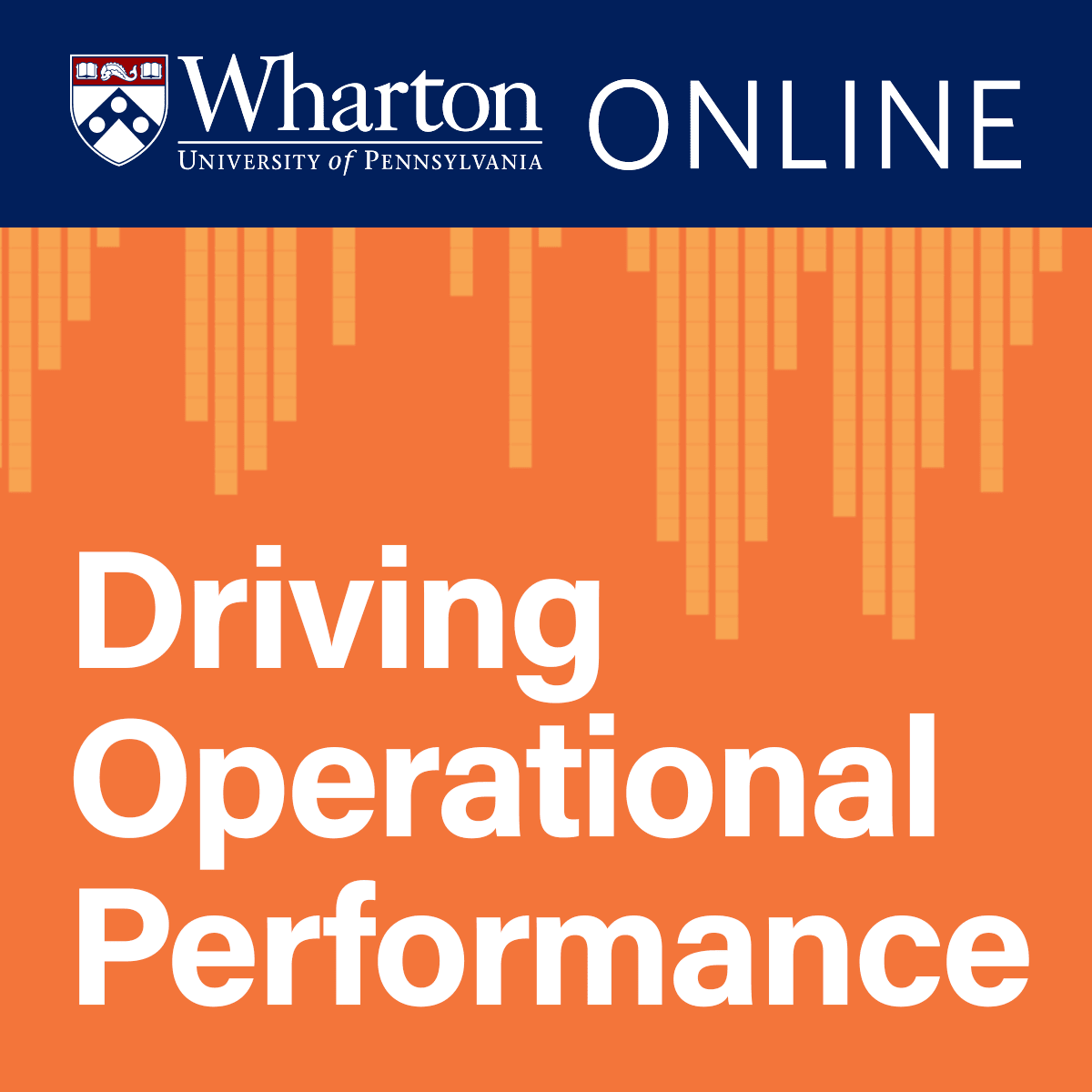Operations Analyst
A Comprehensive Guide to Becoming an Operations Analyst
An Operations Analyst plays a vital role in enhancing the efficiency and effectiveness of an organization's internal processes. These professionals delve into data, workflows, and systems to identify areas for improvement, streamline operations, and ultimately contribute to a company's overall performance and profitability. Imagine a company as a complex machine; an Operations Analyst is like a skilled technician who examines each part, identifies any friction or inefficiencies, and makes adjustments to ensure the entire machine runs smoothly and optimally.
Working as an Operations Analyst can be engaging and exciting due to the direct impact you can have on an organization's success. You'll often find yourself at the intersection of data analysis, strategic thinking, and practical problem-solving. One of the most rewarding aspects is seeing your recommendations translate into tangible improvements, whether it's reducing costs, improving customer satisfaction, or increasing productivity. Furthermore, the role often involves collaborating with diverse teams across various departments, providing a holistic view of the business and continuous learning opportunities.
Introduction to Operations Analyst Roles
This article aims to provide a comprehensive overview of the Operations Analyst career path. We will explore the definition and scope of this role, the key industries that employ Operations Analysts, and their crucial function in driving organizational efficiency and decision-making.
Defining the Operations Analyst: Scope and Purpose
An Operations Analyst, sometimes referred to as an Operations Research Analyst, is a professional who examines an organization's systems, procedures, and activities to identify problems, inefficiencies, and areas for improvement. Their primary goal is to help management make more informed decisions to optimize how the company functions. This involves using a combination of data analysis, mathematical modeling, statistical methods, and critical thinking to develop solutions and new goals that will enhance overall operations.
The scope of an Operations Analyst's work can be broad, touching upon various facets of a business. They might focus on specific areas like supply chain management, inventory control, production planning, quality assurance, or customer service processes. Alternatively, they might analyze the entire operational workflow of a company. The insights and strategies they provide are data-driven and aim to improve efficiency, reduce costs, enhance customer service, and boost productivity.
Operations Analysts are essentially strategic problem-solvers. They bridge the gap between raw data and actionable business intelligence, enabling organizations to become more agile, competitive, and profitable. Their work is crucial for continuous improvement and adapting to evolving market demands.
Key Industries Employing Operations Analysts
Operations Analysts are in demand across a wide array of industries due to their versatile skill set and the universal need for operational efficiency. According to the U.S. Bureau of Labor Statistics (BLS) and other sources, some of the largest employers of Operations Analysts include professional, scientific, and technical services; finance and insurance; and management of companies and enterprises. Manufacturing and the federal government, particularly within the Department of Defense, also significantly employ these professionals.
Other prominent sectors include healthcare, where they might optimize patient flow or resource allocation; logistics and transportation, focusing on supply chain optimization; and retail, where they might analyze sales data and inventory management. The technology sector, including IT and software development, also relies on Operations Analysts to streamline development processes and improve system performance. Essentially, any organization that has complex processes and seeks to improve its bottom line can benefit from the expertise of an Operations Analyst.
The Operations Analyst's Role in Organizational Efficiency and Decision-Making
Operations Analysts are pivotal in driving organizational efficiency. By meticulously examining existing processes, they identify bottlenecks, redundancies, and areas of waste. They then develop and propose solutions, which might involve redesigning workflows, implementing new technologies, or optimizing resource allocation. This focus on streamlining operations directly contributes to reduced costs, faster turnaround times, and improved output quality.
Furthermore, Operations Analysts play a crucial role in supporting data-driven decision-making. They collect, analyze, and interpret vast amounts of operational data to provide managers and executives with clear, actionable insights. These insights help leaders understand current performance, forecast future trends, and make strategic choices about resource deployment, process changes, and overall business strategy. By providing a solid analytical foundation, Operations Analysts empower organizations to move beyond intuition and make choices that are backed by evidence, leading to more effective and impactful outcomes.
Core Responsibilities of an Operations Analyst
The day-to-day work of an Operations Analyst is dynamic and involves a range of critical tasks. Understanding these core responsibilities will provide a clearer picture of what this career entails.
Data Collection, Analysis, and Process Optimization
A fundamental responsibility of an Operations Analyst is the collection and meticulous analysis of data. This data can come from diverse sources, including company databases, sales histories, customer feedback, and direct observation of processes. Analysts use various tools and techniques, including statistical methods and data visualization software, to sift through this information, identify trends, pinpoint inefficiencies, and uncover root causes of operational problems.
Once insights are gleaned from the data, the focus shifts to process optimization. Operations Analysts assess current operational systems and workflows to find opportunities for improvement. This might involve redesigning existing processes, recommending the adoption of new technologies or software, or suggesting changes in resource allocation to enhance productivity and reduce waste. The goal is to make processes more streamlined, cost-effective, and aligned with the organization's strategic objectives.
To excel in data analysis and process optimization, a strong foundation in relevant tools and methodologies is crucial. Online courses can provide valuable skills in these areas.
Workflow Analysis and Performance Metrics
Workflow analysis is another key area of responsibility. Operations Analysts map out existing workflows to understand how tasks are currently performed, how information flows, and where handoffs occur. This detailed understanding allows them to identify bottlenecks, redundancies, or points of friction that hinder efficiency. They may use various diagramming techniques and software to visualize these workflows and communicate their findings.
A critical aspect of an Operations Analyst's role is establishing, monitoring, and reporting on key performance indicators (KPIs). KPIs are measurable values that demonstrate how effectively a company is achieving key business objectives. Analysts work with management to define relevant KPIs for different operational areas. They then track these metrics over time to measure the effectiveness of implemented changes, identify areas that require further attention, and provide regular performance reports to stakeholders. This continuous monitoring ensures that improvement efforts are on track and delivering the desired results.
Developing skills in workflow analysis and performance metrics can be enhanced through targeted online learning. These courses offer practical insights into these essential competencies.
Collaboration with Cross-Functional Teams and Stakeholder Communication
Operations Analysts rarely work in isolation. A significant part of their role involves collaborating with cross-functional teams, including departments such as finance, human resources, production, sales, marketing, and IT. This collaboration is essential to gather comprehensive information, understand different perspectives, ensure that proposed solutions are practical and align with overall business goals, and facilitate the smooth implementation of changes.
Effective communication and stakeholder management are paramount. Analysts must be able to clearly articulate their findings, explain complex data in an understandable manner, and present their recommendations persuasively to various audiences, including senior management and executives. This involves preparing detailed reports, creating compelling presentations, and sometimes leading training sessions for new processes or systems. Strong interpersonal skills are crucial for building relationships, managing expectations, and navigating potential resistance to change.
For those looking to build strong collaborative and communication skills, which are vital for an Operations Analyst, consider exploring resources that focus on teamwork and effective presentation of data.
Essential Skills and Competencies
Success as an Operations Analyst hinges on a blend of technical proficiency, sharp analytical thinking, and strong interpersonal abilities. Mastering these skills is crucial for anyone aspiring to thrive in this field.
Technical Skills: Proficiency in SQL, Excel, ERP Systems, and More
A strong command of technical tools is fundamental for an Operations Analyst. Proficiency in Microsoft Excel is often considered a baseline skill, used for data manipulation, analysis, and creating reports. Many roles also require knowledge of SQL (Structured Query Language) for database management and extracting data for analysis.
Familiarity with Enterprise Resource Planning (ERP) systems like SAP or Oracle is highly valuable, as these systems are central to managing core business processes in many organizations. Beyond these, experience with data visualization tools such as Tableau or Power BI helps in presenting complex data in an understandable and actionable format. Depending on the industry and specific role, knowledge of other analytical software, statistical packages (like R or Python), or simulation software might also be beneficial.
Online courses offer excellent opportunities to develop and refine these critical technical skills. Whether you're starting from scratch or looking to deepen your existing knowledge, these courses cover essential tools used by Operations Analysts.
For those interested in deepening their understanding of specific software and their applications in operations, these books provide comprehensive guidance.
Analytical and Problem-Solving Abilities
At its core, the role of an Operations Analyst is about analyzing information and solving problems. This requires strong analytical skills – the ability to dissect complex data sets, identify patterns and anomalies, understand root causes, and draw logical, actionable conclusions. Analysts must be adept at critical thinking, evaluating information objectively, and challenging assumptions to ensure the validity of their findings.
Exceptional problem-solving abilities are equally crucial. Operations Analysts are tasked with identifying operational challenges and then developing innovative and practical solutions. This involves not just understanding the problem but also creatively brainstorming potential fixes, evaluating their feasibility and impact, and recommending the most effective course of action. A keen attention to detail is also essential to ensure accuracy in analysis and the development of robust solutions.
Communication and Stakeholder Management
While technical and analytical skills are vital, "soft skills" like communication and stakeholder management are what often differentiate a good Operations Analyst from a great one. Analysts must effectively convey their findings, analyses, and recommendations to a wide range of audiences, from technical team members to senior executives who may not have a deep understanding of the data. This requires clear, concise written and verbal communication skills, as well as the ability to tailor the message to the audience.
Stakeholder management involves building and maintaining positive working relationships with individuals and groups across the organization. This includes understanding their needs and concerns, managing expectations, and effectively navigating differing opinions or resistance to change. Strong interpersonal skills, including the ability to listen, persuade, and collaborate, are essential for gaining buy-in for proposed changes and ensuring their successful implementation.
Educational Pathways
Embarking on a career as an Operations Analyst typically involves a combination of formal education and, often, specialized certifications. Understanding the common academic routes and credentials can help aspiring analysts plan their journey.
Relevant Degrees: Business Administration, Industrial Engineering, and Beyond
A bachelor's degree is generally the minimum educational requirement for an entry-level Operations Analyst position. Common fields of study include Business Administration, Industrial Engineering, Operations Management, Finance, Economics, Computer Science, Mathematics, or Supply Chain Management. Some universities even offer specialized degrees in Operations Research or Business Analytics.
Regardless of the specific major, coursework that emphasizes quantitative analysis, statistics, data analysis, computer science, and business principles is highly beneficial. For those considering more advanced roles or wishing to specialize further, a master's degree, such as an MBA with an operations focus or a Master of Science in Business Analytics (MSBA), can be a significant asset and may be preferred or even required by some employers.
For individuals exploring academic programs, OpenCourser offers a vast catalog to browse through thousands of courses and degree options from various institutions.
Certifications: Adding Value with Six Sigma, CAP, and Others
While not always mandatory, professional certifications can significantly enhance an Operations Analyst's resume, demonstrate specialized knowledge, and potentially lead to higher earning potential or more advanced roles. Some popular and valuable certifications in this field include:
Six Sigma certifications (e.g., Green Belt, Black Belt) are widely recognized and focus on process improvement methodologies, aiming to reduce defects and variability in business processes.The Certified Analytics Professional (CAP) designation is a general analytics certification that validates an individual's ability to effectively derive insights from data and lead analytics projects. Other certifications related to project management (like PMP), supply chain management, or specific software (e.g., SAP certifications) can also be beneficial depending on the desired career path and industry.
These books delve into the principles and practices that underpin many certification programs and are valuable for continuous professional development.
The Role of University Research and Internships
Engaging in university research projects, particularly those involving data analysis, process modeling, or optimization, can provide valuable practical experience for aspiring Operations Analysts. Such projects allow students to apply theoretical knowledge to real-world or simulated problems, develop research methodologies, and often work as part of a team.
Internships are an excellent way to gain hands-on experience in an actual business environment. An internship allows students to work alongside experienced Operations Analysts, contribute to real projects, learn about industry-specific challenges, and build a professional network. Many companies use internships as a pipeline for hiring entry-level talent, making them a crucial stepping stone into the field. Some entry-level roles might even explicitly look for prior internship experience.
Online Learning and Self-Study
In today's rapidly evolving job market, online learning and self-study have become increasingly viable and valuable pathways for acquiring the skills needed for a career as an Operations Analyst. These flexible learning options are particularly beneficial for career changers or those looking to supplement formal education.
Key Platforms and Resources for Skill Development
Numerous online platforms offer a wealth of courses relevant to operations analysis. OpenCourser is a prime example, providing a comprehensive catalog of online courses and books, making it easy to search through tens of thousands of options with a single query. Learners can find courses covering essential skills like data analysis, Excel formulas and functions, SQL, Power BI, Tableau, Python, supply chain management, process improvement methodologies like Six Sigma, and business analytics.
When selecting online courses, learners can benefit from OpenCourser's features such as detailed course summaries, instructor information, institutional affiliations, and sometimes even syllabi. The "Save to list" feature allows users to shortlist interesting courses and return to them later. Furthermore, OpenCourser's "Activities" section can suggest preparatory work before a course, supplementary exercises during the course, and follow-up activities to refine skills. This structured approach helps learners maximize their educational experience.
The following courses are excellent starting points for developing foundational and advanced skills relevant to operations analysis, available through various online learning providers.
Books remain a cornerstone of in-depth learning. These selections offer comprehensive knowledge on core topics for Operations Analysts.
The Power of Project-Based Learning and Case Studies
Theoretical knowledge is important, but practical application is what truly solidifies skills. Project-based learning, often integrated into online courses or pursued independently, is an excellent way for aspiring Operations Analysts to gain hands-on experience. This could involve analyzing a publicly available dataset to identify trends, developing a process improvement plan for a hypothetical scenario, or building a dashboard to track specific metrics. Such projects not only reinforce learning but also provide tangible examples of skills to showcase to potential employers.
Case studies, which are detailed examinations of real-world business situations, offer invaluable insights into how operational challenges are tackled in practice. Many online courses and business programs utilize case studies to help learners understand complex decision-making processes, the application of analytical tools, and the impact of different operational strategies. Working through case studies helps develop critical thinking and problem-solving skills in a relevant context. OpenCourser's platform may also feature courses with strong project components or those that heavily utilize case studies, which can be identified through course descriptions and syllabi.
Engaging with courses that emphasize practical application through projects can significantly boost your learning and readiness for real-world challenges.
Integrating Online Learning with Formal Education and Career Advancement
Online courses can serve as a powerful supplement to formal degree programs. University students can use them to gain deeper knowledge in specific areas, learn new software tools not covered in their curriculum, or prepare for industry certifications. For working professionals, online learning is an effective way to upskill or reskill, stay current with industry trends, and prepare for career advancement or a transition into an Operations Analyst role.
Many individuals successfully transition into operations analysis from unrelated fields by strategically using online courses to build the necessary skill set. This demonstrates initiative and a commitment to learning, qualities highly valued by employers. Furthermore, OpenCourser’s Learner's Guide offers articles on topics like earning certificates from online courses and adding them to a resume or LinkedIn profile, helping learners effectively leverage their online education for career growth. For those on a budget, checking the OpenCourser Deals page can provide access to savings on courses and learning materials.
Career Progression and Opportunities
The path of an Operations Analyst offers various avenues for growth and advancement. Understanding the typical career trajectory, from entry-level positions to senior leadership roles, can help individuals plan their long-term career development in this dynamic field.
Entry-Level Roles and Advancement Pathways
Individuals typically enter the operations analysis field in roles such as Junior Operations Analyst, Operations Coordinator, or Process Analyst. These entry-level positions often focus on data collection, basic analysis, supporting senior analysts, process mapping, and learning the foundational aspects of business operations. Some companies may even offer on-the-job training for these roles.
As analysts gain experience and demonstrate proficiency, they can advance to a mid-level Operations Analyst position. In this role, responsibilities expand to include more complex data interpretation, leading smaller process optimization projects, and developing strategic recommendations. With further experience, typically several years in analytics or a related field, one can progress to a Senior Operations Analyst role. Senior Analysts tackle highly complex analytical challenges, lead significant optimization initiatives, and play a more direct role in supporting strategic decision-making.
For those starting out, these courses provide a solid foundation in the skills needed for entry-level operations roles.
Building a strong foundational understanding is key. These books can serve as excellent resources for those new to the field.
Transitioning to Senior Roles: Operations Manager and Beyond
A common and significant advancement from a Senior Operations Analyst role is to become an Operations Manager. As an Operations Manager, the focus shifts towards overseeing operational teams, managing daily operations, implementing strategic plans, and ensuring overall departmental or organizational efficiency and effectiveness. This role requires strong leadership, people management, and strategic thinking skills, in addition to the analytical capabilities honed as an analyst.
Beyond Operations Manager, further career progression can lead to roles such as Director of Operations, Vice President of Operations, or even Chief Operating Officer (COO). These executive positions involve high-level strategic planning, overseeing entire operational functions across the organization, and driving long-term efficiency, productivity, and profitability. The path to these senior leadership roles often involves a combination of extensive experience, a proven track record of success, and sometimes, advanced degrees like an MBA.
Industry-Specific Growth Trajectories
While the general career path for Operations Analysts shares common milestones, growth trajectories can also be influenced by the specific industry. For instance, an Operations Analyst in the finance sector might progress towards roles like Senior Financial Analyst or specialize in risk management operations. In manufacturing, advancement could lead to roles like Production Manager or Supply Chain Director.
In technology companies, an Operations Analyst might move into product operations management or specialize in optimizing software development lifecycles. The healthcare industry offers paths towards healthcare administration or optimizing clinical workflows. Understanding the nuances and specific needs of a chosen industry can help analysts tailor their skill development and career choices for targeted growth within that sector. Specializing in a particular domain, such as logistics or financial operations, can also open up niche and potentially lucrative career paths.
Industry Challenges and Trends
The field of operations analysis is not static; it's continually evolving in response to technological advancements, global economic shifts, and changing business priorities. Staying aware of these challenges and trends is crucial for Operations Analysts to remain effective and relevant.
The Impact of Automation, AI, and Big Data
Automation and Artificial Intelligence (AI) are significantly transforming the landscape of operations. While some routine data collection and analysis tasks may become automated, this also creates opportunities for Operations Analysts to focus on more complex, strategic work. AI and machine learning can provide powerful tools for predictive analytics, anomaly detection, and optimizing highly complex systems, requiring analysts to develop new skills to leverage these technologies effectively.
The proliferation of Big Data presents both a challenge and an opportunity. Organizations now have access to unprecedented volumes of data, but the ability to effectively manage, analyze, and derive meaningful insights from this data is paramount. Operations Analysts will increasingly need skills in handling large datasets, utilizing advanced analytical platforms, and understanding data governance principles. You can explore Data Science courses on OpenCourser to build these capabilities.
The rise of AI and automation is reshaping many roles. These courses can help you understand and leverage these transformative technologies.
Navigating Global Supply Chain Complexities
Recent global events have highlighted the intricacies and vulnerabilities of global supply chains. Operations Analysts working in logistics, manufacturing, and retail are increasingly tasked with navigating these complexities. This includes addressing issues like port congestion, transportation disruptions, geopolitical risks, and the need for greater supply chain resilience and visibility.
Analysts in this domain must develop a deep understanding of international trade, logistics networks, and risk management strategies. There's a growing emphasis on using data analytics and modeling to improve demand forecasting, optimize inventory levels across global networks, and develop contingency plans to mitigate disruptions. The ability to analyze and interpret global trends and their impact on operations is becoming a critical skill.
Understanding the complexities of modern supply chains is essential for many Operations Analysts. These books offer valuable insights into this critical area.
Sustainability and Ethical Considerations in Operations
There is a growing global focus on sustainability and ethical practices in business operations. Consumers, investors, and regulators are increasingly demanding that companies operate in an environmentally and socially responsible manner. This trend presents new challenges and opportunities for Operations Analysts.
Analysts may be involved in identifying ways to reduce waste, lower carbon emissions, optimize energy consumption, ensure ethical sourcing of materials, and improve labor conditions within supply chains. This requires an understanding of sustainability principles, relevant regulations, and methods for measuring and reporting on environmental and social impact. Integrating these considerations into operational decision-making is becoming an increasingly important aspect of the role.
Global Market Demand
The demand for Operations Analysts is influenced by various factors, including economic growth, technological adoption, and industry-specific needs across different regions. Understanding these dynamics can provide valuable context for job seekers and professionals in the field.
Geographic Demand Hotspots and Remote Work Opportunities
While Operations Analysts are needed across the globe, certain geographic regions may exhibit higher demand due to concentrations of specific industries or economic activity. For example, major financial centers, manufacturing hubs, and technology clusters often have a significant need for operations expertise. In the United States, states like New Jersey, Virginia, and California, along with the District of Columbia, have been noted for offering higher average salaries, potentially indicating strong demand.
The rise of remote work has also opened up new possibilities. Many tasks performed by Operations Analysts, particularly those involving data analysis and report generation, can be done effectively from a remote location. This trend allows companies to tap into a broader talent pool and offers analysts greater flexibility in where they live and work. Platforms listing remote jobs often feature numerous opportunities for Operations Analysts at various experience levels.
To gain a better understanding of regional job markets, you can explore resources like the U.S. Bureau of Labor Statistics Occupational Outlook Handbook, which provides insights into employment trends.
Competitiveness in Emerging Markets
Emerging markets are increasingly recognizing the value of operational efficiency as they integrate into the global economy and seek to improve their competitiveness. This can create significant opportunities for Operations Analysts. As companies in these regions grow and mature, the need to optimize processes, manage complex supply chains, and make data-driven decisions becomes more acute.
Professionals with operations analysis skills may find roles in a variety of sectors within emerging economies, including manufacturing, logistics, finance, and increasingly, technology and services. The World Bank Group, for instance, employs Operations Analysts to support project management, pipeline development, and strategy implementation in emerging markets, highlighting the global relevance of this skill set. However, competition can also be robust as local talent pools develop and international professionals seek opportunities in these dynamic environments.
Frequently Asked Questions (Career Focus)
This section addresses some common questions that individuals exploring a career as an Operations Analyst often have.
What are the typical salary ranges and factors affecting pay for an Operations Analyst?
The salary for an Operations Analyst can vary significantly based on several factors. In the United States, the median annual wage for operations research analysts was reported as $91,290 in May 2024 by the U.S. Bureau of Labor Statistics. Other sources like Glassdoor and Salary.com indicate average salaries ranging from approximately $68,000 to $76,711 per year, with typical ranges falling between $67,711 and $88,550. Some data suggests hourly wages average around $33.75.
Key factors influencing salary include education level (with master's degrees often commanding higher pay), years of experience (senior roles naturally earn more), industry (e.g., federal government, finance, and aerospace/defense often offer higher median wages), geographic location (major metropolitan areas and certain states tend to have higher pay scales), and specific skills and certifications (e.g., Six Sigma, PMP).
What are the differences in requirements for entry-level versus senior Operations Analyst roles?
Entry-level Operations Analyst roles typically require a bachelor's degree in a relevant field like business, engineering, mathematics, or computer science. The focus is often on data collection, basic data analysis, supporting senior analysts, report generation, and learning an organization's processes. Internships or some prior experience in an analytical or operational support role can be advantageous.
Senior Operations Analyst positions usually require several years of direct experience (often 5+ years) in operations analysis or a closely related field. These roles demand a deeper level of expertise in data analysis, process optimization methodologies, and strategic thinking. Senior analysts are expected to lead complex projects, mentor junior staff, develop and implement significant operational improvements, and present findings and recommendations to executive leadership. A master's degree or specialized certifications may be preferred or required for senior roles.
How valuable are industry certifications like Six Sigma or CAP for an Operations Analyst?
Industry certifications like Six Sigma (Green Belt, Black Belt) and Certified Analytics Professional (CAP) can be quite valuable for Operations Analysts. These certifications demonstrate a commitment to professional development and validate specific knowledge and skills in process improvement and analytics, respectively. They can make a candidate more competitive in the job market, potentially lead to higher earning potential, and open doors to more specialized or advanced roles.
While not always a strict requirement for every position, employers often view certifications favorably as they indicate a recognized level of competency. Other certifications, such as Project Management Professional (PMP) or those related to specific ERP systems (like SAP), can also add significant value depending on the analyst's career goals and the industry they work in.
Is it possible to transition into an Operations Analyst role from an unrelated field?
Yes, it is definitely possible to transition into an Operations Analyst role from an unrelated field. Many skills acquired in other professions, such as problem-solving, critical thinking, data handling (even if in a different context), project coordination, and communication, are transferable and highly relevant to operations analysis. The key is to identify these transferable skills and supplement them with targeted learning in areas specific to operations analysis, such as data analysis techniques, process modeling, and relevant software tools (e.g., Excel, SQL, Tableau).
Online courses and self-study are excellent resources for acquiring these specific skills. Building a portfolio of projects, even personal or hypothetical ones, can demonstrate newly acquired competencies. Networking with professionals in the field and highlighting your transferable skills and new knowledge on your resume and during interviews can significantly aid in making a successful career transition. Taking an encouraging and proactive approach to learning and skill development is crucial for those aiming to pivot into this analytical career. OpenCourser offers a Career Development section that might offer further guidance and resources for career changers.
How do economic cycles typically impact job stability for Operations Analysts?
The job stability of Operations Analysts can be influenced by economic cycles, but the role also possesses characteristics that can offer some resilience. During economic downturns, companies often intensify their focus on efficiency, cost reduction, and process optimization to maintain profitability. This can increase the demand for Operations Analysts who specialize in identifying and implementing such improvements.
Conversely, during periods of economic growth, businesses may expand operations, launch new products, or enter new markets, all of which also require careful planning, analysis, and process design, thereby sustaining demand for analysts. The U.S. Bureau of Labor Statistics projects a strong job outlook for operations research analysts, with employment expected to grow 23 percent from 2023 to 2033, much faster than the average for all occupations. This robust outlook is partly driven by the increasing use of data in decision-making and the ongoing need for operational efficiency across industries. However, like many roles, specific industries heavily impacted by a recession might see some contraction in hiring.
What are the pros and cons of freelance versus in-house opportunities for Operations Analysts?
Both freelance (consulting) and in-house (permanent employee) opportunities for Operations Analysts offer distinct advantages and disadvantages. Freelance analysts often enjoy greater flexibility in terms of work hours and project selection. They may also have the potential for higher hourly rates and exposure to a wider variety of industries and business challenges. However, freelance work typically involves the responsibility of finding new clients, managing administrative tasks (like invoicing and taxes), and may lack the stability of a regular paycheck and employer-provided benefits.
In-house Operations Analysts benefit from a steady income, company-sponsored benefits (health insurance, retirement plans), and often, more structured career development and training opportunities within the organization. They can develop deep knowledge of a particular company and industry and build long-term relationships with colleagues. The potential downsides can include less variety in projects compared to consulting and potentially less flexibility in work arrangements, although this is changing with the rise of remote and hybrid models. The choice between freelance and in-house often comes down to individual preferences regarding stability, autonomy, and career goals.
Conclusion
The role of an Operations Analyst is a dynamic and impactful career path for individuals who are analytical, detail-oriented, and passionate about improving how organizations function. It offers the chance to make tangible contributions to efficiency, cost-effectiveness, and overall business success across a multitude of industries. While the journey requires a solid educational foundation, the development of key technical and soft skills, and a commitment to continuous learning, the opportunities for growth and the satisfaction of solving complex challenges make it a rewarding pursuit. Whether you are a student exploring future careers, a professional considering a transition, or an analyst looking to advance, understanding the facets of this role, as outlined in this article, can help you navigate your path with clarity and confidence. OpenCourser is here to support your learning journey with a vast array of online courses and resources to help you build the necessary skills and achieve your career aspirations in operations analysis.






























